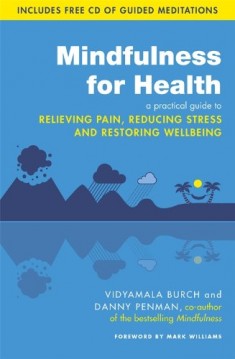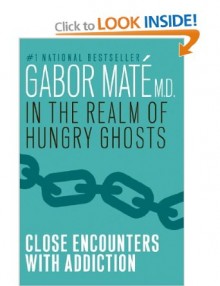I have learnt a great deal from Dr. Bruce Perry about trauma and the healing of trauma over the past years. I have posted a number of articles about Bruce’s work on my Healing blog on The Carrolup Story website that I run with John Stanton. I thought it was time that I linked to these articles on this website due to the impact of childhood trauma and neglect on the development of addiction.
Impact of a Loved One’s Substance Use Problems on Family Members
Our research aimed to look at how a loved one’s substance use problems can impact on the health and well-being of other family members. (2,145 words) *
‘Experiences of a Mother of Two Young Heroin Addicts’ by Mark
 A very moving blog which first appeared on Wired In To Recovery (WITR) in May 2009. Mark blogged regularly on WITR until the community closed. I also published this on Recovery Stories in June 2013.
A very moving blog which first appeared on Wired In To Recovery (WITR) in May 2009. Mark blogged regularly on WITR until the community closed. I also published this on Recovery Stories in June 2013.
‘We found my 20 year old brother dead of an overdose. He had just kicked the habit so tolerance was low. He started a job and the first payday was his last. Mum wrote this after I got clean. Copy and use it anywhere it can be of use.’ Mark
‘What is it like being the mother of an addict? (Experiences of a Mother of Two Young Heroin Addicts)
Voices of Loved Ones Indirectly Affected by Substance Use Problems, Part 2
 Continuing the qualitative research project conducted by Gemma Salter, a talented undergraduate student working with me back in 2004. The research involved interviewing nine parents and one grandparent (who had assumed the role of parent) of people with a drug and/or alcohol problem. The participants were recruited from West Glamorgan Council on Alcohol and Drug Abuse (WGCADA) in Swansea and Drug and Alcohol Family Support (DAFS) in Blaenau Gwent, South Wales.
Continuing the qualitative research project conducted by Gemma Salter, a talented undergraduate student working with me back in 2004. The research involved interviewing nine parents and one grandparent (who had assumed the role of parent) of people with a drug and/or alcohol problem. The participants were recruited from West Glamorgan Council on Alcohol and Drug Abuse (WGCADA) in Swansea and Drug and Alcohol Family Support (DAFS) in Blaenau Gwent, South Wales.
…. It doesn’t take long for the effects of stress to manifest itself in physical and psychological health problems. Physical symptoms come in the form of eating and sleeping problems, high blood pressure, stomach problems, irritable bowel syndrome and tension aches. Some parents are prescribed antidepressants by their GPs.
Gabor Maté: When The Body Says No – Mind/Body Unity and the Stress-Disease Connection
‘Stress is ubiquitous these days – it plays a role in the workplace, in the home, and virtually everywhere that people interact. It can take a heavy toll unless it is recognized and managed effectively and insightfully.
Western medicine, in theory and practice, tends to treat mind and body as separate entities. This separation, which has always gone against ancient human wisdom, has now been demonstrated by modern science to be not only artificial, but false. The brain and body systems that process emotions are intimately connected with the hormonal apparatus, the nervous system, and in particular the immune system.
Emotional stress, especially of the hidden kind that people are not aware of, undermines immunity, disrupts the body’s physiological milieu and can prepare the ground for disease. There is strong evidence to suggest that in nearly all chronic conditions, from cancer, ALS, or multiple sclerosis to autoimmune conditions like rheumatoid arthritis, inflammatory bowel disease or Alzheimer’s, hidden stress is a major predisposing factor.
‘On Waking Up From the “American Dream”’ by Laura Delano
 Another powerful blog from one of my favourite writers. Please SHARE widely, Laura’s words are so important.
Another powerful blog from one of my favourite writers. Please SHARE widely, Laura’s words are so important.
“These enviable youngsters appear to be the winners in the race we have made of childhood. But the reality is very different, as I have witnessed in many of my own students and heard from the hundreds of young people whom I have spoken with on campuses or who have written to me over the last few years.
Our system of elite education manufactures young people who are smart and talented and driven, yes, but also anxious, timid, and lost, with little intellectual curiosity and a stunted sense of purpose: trapped in a bubble of privilege, heading meekly in the same direction, great at what they’re doing but with no idea why they’re doing it.” William Deresiewicz, Don’t Send Your Kids to the Ivy League, The New Republic, July 21st, 2014
Author’s Note: I encourage you to read Mr. Deresiewicz’ piece before continuing on with mine below.
Throughout my life, I’ve had access to privilege, especially in regards to my education, which included a lifetime of private schooling followed by matriculation at Harvard University.
‘Self-Compassion’ by Kristin Neff
‘… and you forget to say, “This is really difficult, this is really stressful. I need some soothing and comforting”. Most people forget that they need to give that to themselves.’
Self-compassion is not just essential for recovery, but also just for life in general. Kristin Neff, a leading expert in the ‘field’ of self-compassion, has a wonderful website on the topic.
Here is the first in a series of introductory videos on self-compassion that Kristin has made. You can link to the other videos from the YouTube page that this video is on.
My Favourite Blogs: ‘Experiences of a mother of two young heroin addicts’ by Mark’
 A very moving blog which first appeared on Wired In To Recovery (WITR) in May 2009 and on Recovery Stories in June 2013. Mark blogged regularly on WITR until the community closed.
A very moving blog which first appeared on Wired In To Recovery (WITR) in May 2009 and on Recovery Stories in June 2013. Mark blogged regularly on WITR until the community closed.
“We found my 20 year old brother dead of an overdose. He had just kicked the habit so tolerance was low. He started a job and the first payday was his last.
Mum wrote this after I got clean. Copy and use it anywhere it can be of use.”
Recommended book: Mindfulness for Health
 Pain, suffering and stress can be intolerable – but it doesn’t have to be this way.
Pain, suffering and stress can be intolerable – but it doesn’t have to be this way.
Mindfulness for Health reveals a series of simple practices that you can incorporate into your daily life to relieve chronic pain and the suffering and stress of illness. Clinical trials show that mindfulness meditation can be as effective as prescription painkillers and also enhances the body’s natural healing systems. Mindfulness can also reduce the anxiety, depression, irritability, exhaustion and insomnia that can arise from chronic pain and illness.
Mindfulness for Health is based on a unique meditation programme developed by Vidyamala Burch to help her cope with the severe pain of spinal injury. Taught at Breathworks in the UK – and its affiliates around the world – this programme has helped tens of thousands of people cope with pain, illness and stress.
The eight-week programme at the heart of this book takes just 10-20 minutes per day. You’ll be surprised by how quickly your suffering melts away, leaving behind a deep-seated love of life.
‘Trauma Change Resilience’ by Dr. Megan McElheran at TEDxYYC
“If, on a day-to-day basis, we as individuals and as members participating in our communities are better able to operate from a position where all experience is valued, I think we will be healthier and better able to address the challenges in our lives from a place of being willing and able to have an experience whatever those challenges should entail.”
As Canada begins to assimilate its soldiers from Afghanistan, Dr. Megan McElheran’s undertaking is an important mission. The Stanford-educated doctor of psychology is one of a team of 13 at the federally-funded CareWest Operational Stress Injury (OSI) Clinic tasked with diagnosing and treating psychologically-injured soldiers returning from the fields of battle in Afghanistan, as well as previous conflicts and peacekeeping missions.
Megan’s work also includes addressing the burgeoning awareness of the impact of operational stress-related injuries on current serving and veteran members of the Royal Canadian Mounted Police.
‘Madness!’ By Maddie
 ‘So close to one year sobriety now and I’ve been reflecting a lot. The biggest thing for me at the moment is being so aware of the insanity and madness in which I used to live. I totally understand what insanity and madness mean now.
‘So close to one year sobriety now and I’ve been reflecting a lot. The biggest thing for me at the moment is being so aware of the insanity and madness in which I used to live. I totally understand what insanity and madness mean now.
How insane to think it was a good idea to steal drugs from a dealer who was a biker and his girlfriend often had a black eye? How insane was it to think it was a good idea to have sex with strangers for money…
Towards the end of my using heavily, I would pick up my drugs from my dealer, go to work for the day (in the bathhouse), only to have to pay for more drugs on the way home. Insane! I was effectively making no money, as I was drugging away every single cent I earned!
Detox and early abstinent recovery: make it easier

“If you are planning a detox, get ready for it. It’ll be much easier if you know what to expect. Don’t do your own detox, let someone else be in charge. Stand alone detoxes will almost all fail: you need detox plus. By that, I mean more has to be added in. Getting onto an intensive treatment programme (either residential or community) at least three months long is likely to help. Stay away from using or drinking friends and delete dealers’ numbers from your mobile. Always remember, you only need to do this once.”
Peapod was one of the most prolific and respected bloggers on Wired In To Recovery before going into ‘retirement’. (S)he wrote a series of must-read blogs containing important hints to facilitate recovery which were very popular. Peapod’s empathy and understanding, as well as experience in the field, shone through in these blogs. I’ve arranged these blogs into what I call ‘Peapod’s Guide to Recovery.’ This is the first of seven articles.
‘Detox and early recovery: what’s it feel like?
‘’Empty’; ‘cored out’; ‘flat as a pancake’; ‘anxious’; ‘aching’; ‘miserable’… all comments I’ve heard from clients after detox. It resonates with my own experience. I’ve been detoxed twice and I found it pretty hard going.
This week, I’ve spotted a few people on Wired In asking if it’s normal to feel so low after a detox. I’ve commented in each case I’ve spotted because I know what a vulnerable time it is. Have ever walked or driven across a salt pan? These are big flat expanses of endless monotony and sometimes used as a metaphor for the post-detox experience. So why is detox and the immediate time after so challenging?
A bit about the brain
Whether you sign up to the disease model of addiction or not, there’s overwhelming evidence to show that addiction causes changes in brain structure and function. As addiction takes hold, several things in the brain start to change.
Various drugs cause the pleasure chemical dopamine (a neurotransmitter or chemical messenger) to be released in large quantities. Cells near the ones that release dopamine pick it up on their surfaces through dopamine receptors stimulating the cell so we feel pleasure. Over time, the body thinks, ‘Wait a minute, with so much dopamine around, I’m feeling a bit over-stimulated; I don’t need all these receptors’ and shuts some of them down.
In addition, some drugs can suppress many of the brain’s activities. They turn the nervous system’s dial down a few notches, quietening nerves, worries and alertness. During detox, the dial gets turned back up suddenly. Lots of different neurotransmitters behave in odd ways. Pulse rises, blood pressure goes up, tremors, sweats and agitation are to the fore. It’s pretty unpleasant admittedly, but the good news is that all of this has a limited shelf life. It does get better.
Life is a bit greyed out
The first part of recovery is a bit of a pleasure desert. Scientists say that one effect of the limited number of pleasure receptors is that it is harder to feel pleasure from ordinary things early in recovery. Spending time with friends doesn’t do it. Having a meal out or going to the pictures hardly gets a blip on the pleasure radar. It’s no surprise that minds turn to the one thing that’s going to flood those limited receptors and create an oasis in the desert. Using or drinking again.
This does get better
As time goes by, the brain starts to readjust. Receptor production is switched on. The nervous system activity dial that’s been on max gradually gets turned back down again. We feel calmer, less empty and more hopeful, but only if we stick with it and get through the tough bit.
Clear and present dangers
There are three things to watch out for that might trip you up in those early weeks (or indeed at any time).
Stressful situations. Brain stress hormones can trigger the desire to use drugs or to drink. We need to find new ways of managing or avoiding stress. Sharing the journey with others is an effective way to deal with life’s stressful events.
Triggers and cues. Because drug memories and experiences end up engraved on the brain and because they encompass not just the pleasure, but the sensations, the context, where we were and who we were with, anything that reminds us of drinking and using can be a trigger to pick up again. Avoiding triggers and cues is a good idea.
The first drink or drug. It’s highly likely that this thought will pop into your mind at some point: “Maybe I’ll be all right now that my system has had a rest. Perhaps I’ll be able to drink and use normally.” Anything that floods those dopamine receptors can trigger off a powerful desire to have more. A glass of wine at the weekend, or a line of coke as a treat, are bad ideas for folk trying to recover. This kind of experiment easily leads to relapse.
What helps?
The brain’s function begins to recover in those early weeks and by two years is mostly back to normal. There are some things that you can do that are associated with making detox more comfortable, that make dealing with early recovery less grey and which reduce the risk of relapse.
In a nutshell it’s this: get connected! By that, I mean get connected to other recovering people. There’s research to show that increasing the number of sober people in your social network is associated with reduced relapse. Research from Connecticut has shown that simply by introducing one more sober person to your sober network you can reduce your risk of relapse by 27%. That sounds like a good deal to me.
If you are planning a detox, get ready for it. It’ll be much easier if you know what to expect. Don’t do your own detox, let someone else be in charge. Stand alone detoxes will almost all fail: you need detox plus. By that, I mean more has to be added in. Getting onto an intensive treatment programme (either residential or community) at least three months long is likely to help. Stay away from using or drinking friends and delete dealers’ numbers from your mobile. Always remember, you only need to do this once.
If you want success, then get involved with mutual aid groups. There are thousands of AA, NA, CA and SMART groups up and down the country. Almost everybody is nervous about going along, so phone the helpline first. If you know a member, ask them to take you along. Keep going back and check out lots of different meetings; don’t judge by your first meeting along. The more meetings you go to the better.
If relapse happens
Many people in long-term recovery will have had experience of lapse or relapse at some point. While you don’t need to use again, some people will and this can be a danger, particularly if you have been addicted to opiates. Loss of tolerance begins very quickly on getting drug-free and your system becomes more sensitive. Hundreds of people die every year in the UK from unintentional overdose.
You can minimise the risk. Do this by:
- Smoking, not injecting
- Using much less than before (as if you were starting for the first time)
- Not using alone, have someone around
- Don’t mix downers, like heroin, valium and alcohol (very important).
And if you do lapse it needn’t be the end of the world. Get help quickly. Get honest about it with your support network and put twice as much work into your recovery.
Important to know
Detox and even treatment are only small parts of recovery: for many of us, recovery is a long-term process. Most of the recovery journey will take place out of treatment environments – in social settings with other recovering people. Recovery is not about the absence of alcohol or other drugs. It’s about all the positives that come in, but you have to work for them and most of that work will be done more easily if you are shoulder to shoulder with other recovering people.’
‘Experiences of a mother of two young heroin addicts’ by Mark
 A very moving blog which first appeared on Wired In To Recovery (WITR) in May 2009. Mark blogged regularly on WITR until the community closed.
A very moving blog which first appeared on Wired In To Recovery (WITR) in May 2009. Mark blogged regularly on WITR until the community closed.
“We found my 20 year old brother dead of an overdose. He had just kicked the habit so tolerance was low. He started a job and the first payday was his last.
Mum wrote this after I got clean. Copy and use it anywhere it can be of use.”
‘What is it like being the mother of an addict? (Experiences of a mother of two young heroin addicts)
Impact of substance use problems on the family
 This piece of writing, which you can find in the Articles section, was based on a piece of research we conducted ten years ago. Hard to believe!
This piece of writing, which you can find in the Articles section, was based on a piece of research we conducted ten years ago. Hard to believe!
‘In November 2004, I wrote an article, entitled ‘Family Misfortune’, for the magazine Drink and Drugs News in the UK, that focused on the impact that substance use problems can have on the family. The article was based on a piece of research that Gemma Salter and I conducted with family members (primarily mothers) of people who were experiencing substance use problems.
‘Detox and early abstinent recovery: make it easier’ by Peapod
 Peapod was one of the most prolific and respected bloggers on Wired In To Recovery before going into ‘retirement’.
Peapod was one of the most prolific and respected bloggers on Wired In To Recovery before going into ‘retirement’.
(S)he wrote a series of must-read blogs containing important hints to facilitate recovery which were very popular. Peapod’s empathy and understanding, as well as experience in the field, shone through in these blogs.
I’ve arranged these blogs into what I call Peapod’s Guide to Recovery. This is the first of seven articles.








